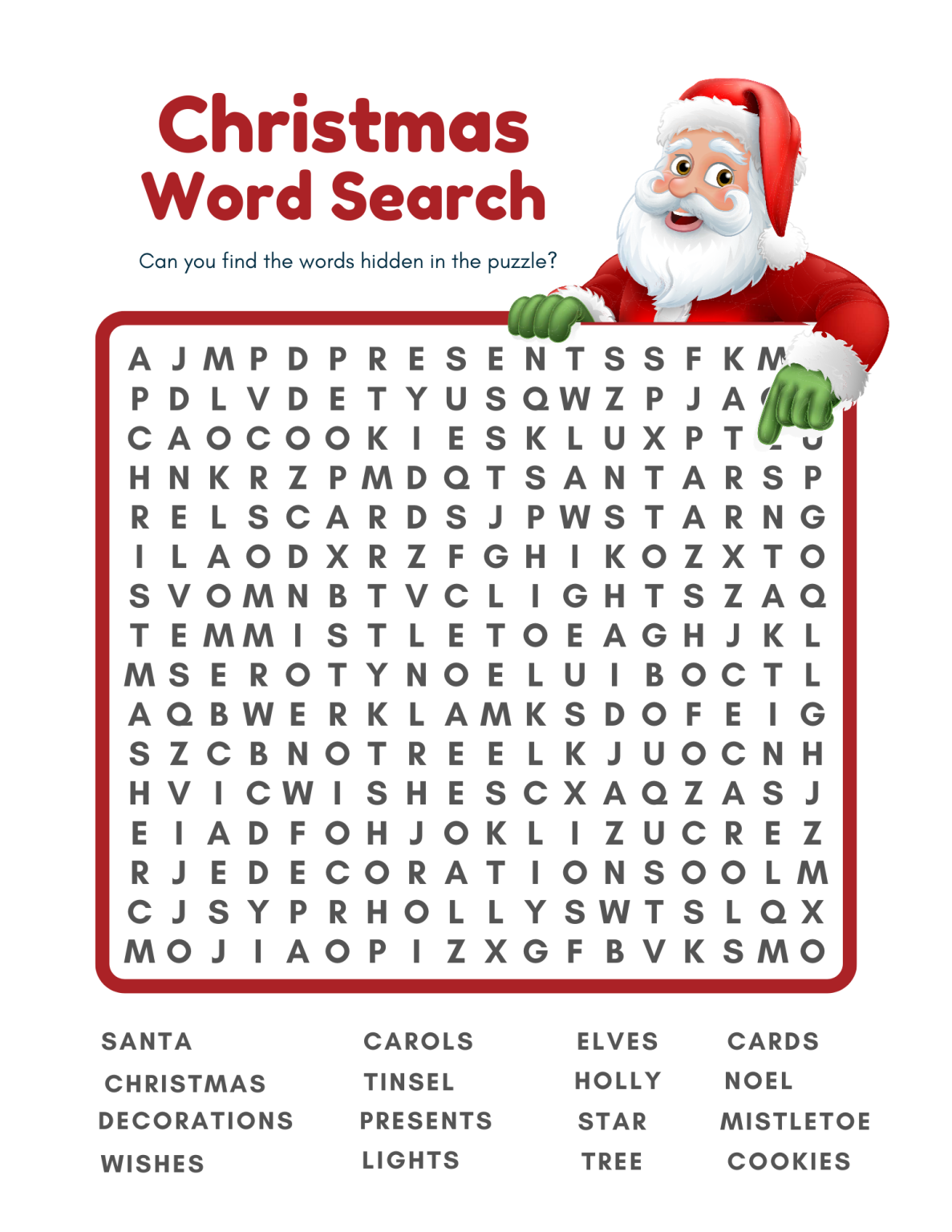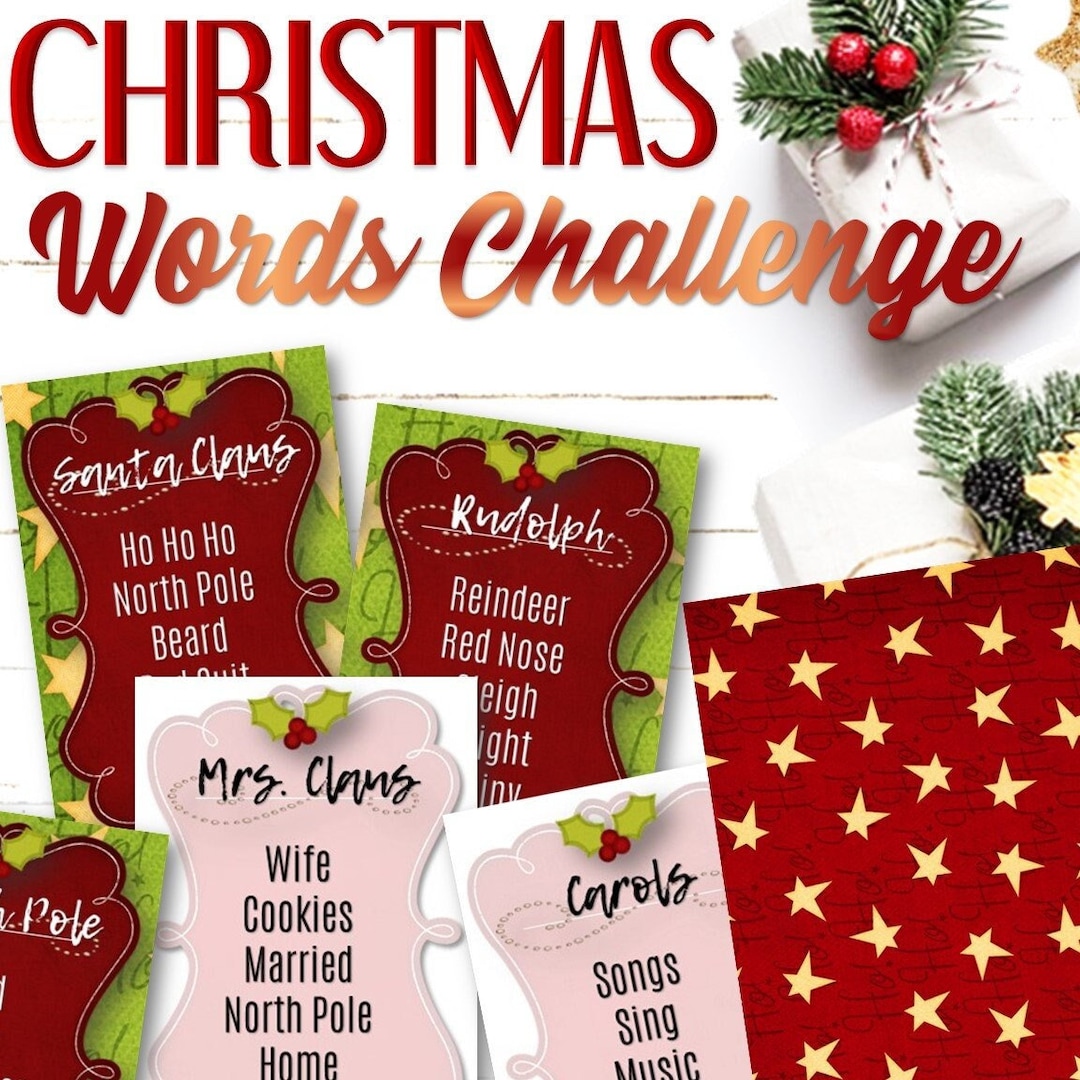Unwrapping The Joy Of Words: Exploring The Christmas Word Challenge
Unwrapping the Joy of Words: Exploring the Christmas Word Challenge
Related Articles: Unwrapping the Joy of Words: Exploring the Christmas Word Challenge
Introduction
With enthusiasm, let’s navigate through the intriguing topic related to Unwrapping the Joy of Words: Exploring the Christmas Word Challenge. Let’s weave interesting information and offer fresh perspectives to the readers.
Table of Content
Unwrapping the Joy of Words: Exploring the Christmas Word Challenge

The Christmas season is a time of celebration, family, and reflection. But beyond the twinkling lights and festive cheer, it also presents an opportunity for intellectual engagement and linguistic exploration. The Christmas Word Challenge, a popular tradition embraced by individuals and families alike, offers a unique way to celebrate the holiday spirit while sharpening one’s vocabulary and fostering a deeper appreciation for the nuances of language.
This challenge, often presented in the form of a list of words related to Christmas, encourages participants to uncover the hidden meanings and origins of these words, delving into their etymological roots and exploring their evolution through history. The process of uncovering these linguistic treasures can be both enriching and rewarding, fostering a deeper understanding of the cultural and historical significance behind the words we use to describe this beloved holiday.
The Importance of the Christmas Word Challenge
The Christmas Word Challenge transcends mere wordplay, offering a plethora of benefits that extend far beyond the festive season.
- Vocabulary Expansion: By engaging with a curated list of Christmas-themed words, participants expand their vocabulary, encountering unfamiliar terms and enriching their linguistic repertoire.
- Cognitive Stimulation: The challenge encourages active learning, stimulating the brain and enhancing cognitive abilities through the process of research, analysis, and creative expression.
- Cultural Understanding: Examining the origins and historical context of Christmas words provides insight into cultural traditions, historical events, and the evolution of language over time.
- Family Bonding: The challenge offers a fun and engaging activity for families to participate in together, fostering shared experiences and creating lasting memories.
- Creative Expression: The challenge encourages creative exploration, inspiring participants to write poems, stories, or even musical pieces inspired by the words they have discovered.
Exploring the Depth of Christmas Words
The words associated with Christmas hold a treasure trove of stories waiting to be uncovered. Here are some examples:
- "Christmas" itself derives from the Old English "Cristes mæsse," meaning "Christ’s mass." This etymology reflects the Christian origins of the holiday and its celebration of the birth of Jesus Christ.
- "Yuletide" originates from the Old Norse word "jól," a pagan festival celebrating the winter solstice. This reveals the blend of pagan and Christian traditions that have shaped Christmas celebrations over centuries.
- "Mistletoe" is derived from the Old English "misteltan," a combination of "mistel" (dung) and "tan" (twig). This seemingly unromantic origin reflects the plant’s parasitic nature, growing on other trees.
- "Reindeer" comes from the Old Norse "hreinn," meaning "clean." This word reflects the animal’s association with purity and its role as a symbol of Christmas in many cultures.
FAQs on the Christmas Word Challenge
Q: What are some examples of Christmas word challenges?
A: There are numerous variations of Christmas word challenges. Some focus on the origins and meanings of Christmas words, while others might include word puzzles, anagrams, or creative writing prompts.
Q: Where can I find a Christmas word challenge?
A: Many websites, blogs, and educational resources offer Christmas word challenges. These can be found through a simple internet search.
Q: What age group is the Christmas word challenge suitable for?
A: The challenge can be adapted to suit various age groups, from children to adults. The complexity of the words and the nature of the challenge can be adjusted accordingly.
Q: What are some tips for creating a successful Christmas word challenge?
A:
- Choose a theme: Focus on specific aspects of Christmas, such as traditions, symbols, or historical events.
- Vary the difficulty: Include a mix of easy and challenging words to cater to different skill levels.
- Encourage creativity: Encourage participants to use their newfound knowledge in creative ways.
- Make it fun: Incorporate games, puzzles, or interactive elements to keep the challenge engaging.
Conclusion
The Christmas Word Challenge offers a unique and enriching experience, weaving together language, history, and the joy of the holiday season. By exploring the origins and meanings of Christmas words, participants delve into a world of cultural and linguistic treasures, expanding their vocabulary, stimulating their minds, and fostering a deeper appreciation for the rich tapestry of traditions that make Christmas so special. As the festive season unfolds, embracing this challenge can be a truly rewarding way to celebrate the spirit of Christmas, one word at a time.








Closure
Thus, we hope this article has provided valuable insights into Unwrapping the Joy of Words: Exploring the Christmas Word Challenge. We hope you find this article informative and beneficial. See you in our next article!
Leave a Reply